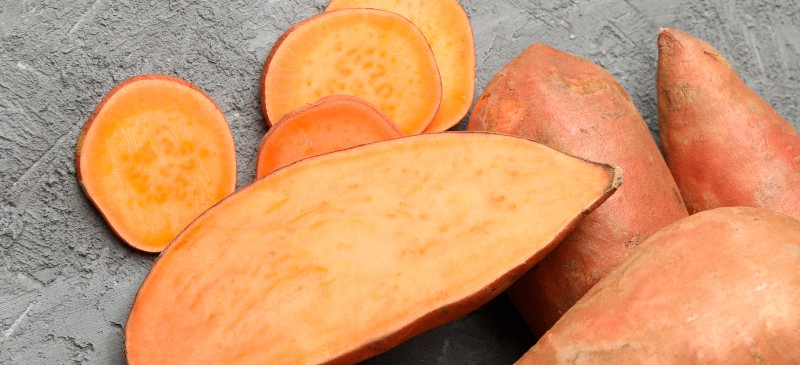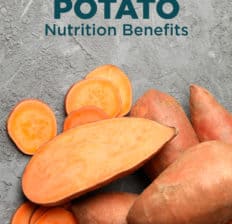This Dr. Axe content is medically reviewed or fact checked to ensure factually accurate information.
With strict editorial sourcing guidelines, we only link to academic research institutions, reputable media sites and, when research is available, medically peer-reviewed studies. Note that the numbers in parentheses (1, 2, etc.) are clickable links to these studies.
The information in our articles is NOT intended to replace a one-on-one relationship with a qualified health care professional and is not intended as medical advice.
This article is based on scientific evidence, written by experts and fact checked by our trained editorial staff. Note that the numbers in parentheses (1, 2, etc.) are clickable links to medically peer-reviewed studies.
Our team includes licensed nutritionists and dietitians, certified health education specialists, as well as certified strength and conditioning specialists, personal trainers and corrective exercise specialists. Our team aims to be not only thorough with its research, but also objective and unbiased.
The information in our articles is NOT intended to replace a one-on-one relationship with a qualified health care professional and is not intended as medical advice.
Sweet Potato Nutrition: Top 6 Benefits + How to Add to Your Diet
January 19, 2022

Striking the balance between vibrant, versatile and delicious, sweet potatoes have become a pretty common component of the modern diet. From sweet potato fries to casseroles, pies and beyond, there are a myriad of ways to enjoy this tasty tuber — and there’s plenty of reason to considering the benefits of sweet potato nutrition.
Sweet potatoes have been domesticated for thousands of years, and their remnants have been discovered in Peru dating all the way back to 8,000 B.C. Today, they are prized around the world for their delicious taste and powerful health perks.
Sweet potatoes are especially popular in the United States, with North Carolina taking the lead in production. Still, many people have doubts when it comes to the sweet potato nutrition profile.
This is because these tubers are usually associated with regular potatoes, which are often served deep-fried, salted and in massive portions that are loaded with extra fat, sodium and calories.
Are they bad for you, and if you’re on a diet, are sweet potatoes fattening or weight loss-friendly? Keep reading to find out what you need to know about sweet potato nutrition and why you should include a serving or two in your diet.
Sweet Potato Nutrition Facts
Sweet potatoes are high in many important nutrients. They contain a good amount of fiber as well as vitamin A, vitamin C, manganese and several other vitamins and minerals.
One medium medium sweet potato (about 114 grams) baked in skin contains approximately:
- 103 calories
- 23.6 grams carbohydrates
- 2.3 grams protein
- 0.2 gram fat
- 3.8 grams dietary fiber
- 21,907 international units vitamin A (438 percent DV)
- 22.3 miligrams vitamin C (37 percent DV)
- 0.6 milligram manganese (28 percent DV)
- 0.3 milligram vitamin B6 (16 percent DV)
- 541 milligrams potassium (15 percent DV)
- 1 milligram pantothenic acid (10 percent DV)
- 0.2 milligram copper (9 percent DV)
- 1.7 milligrams niacin (8 percent DV)
- 0.1 milligram thiamine (8 percent DV)
- 30.8 milligrams magnesium (8 percent DV)
In addition to the nutrients above, sweet potato nutrition also contains riboflavin, phosphorus, vitamin E, vitamin K, calcium and iron.
It’s common to confuse sweet potatoes with yams and even white potatoes, so what’s the difference?
Sweet Potatoes vs. Yams
- The sweet potato belongs to the morning glory family of plants while yams — not to be confused with Mexican yams or wild yam — are actually related to lilies and grasses. Additionally, sweet potatoes are thought to have originated in Central and South America while yams are native to Africa and Asia.
- There are also some significant differences in the appearance of the yam vs. sweet potato as well. Sweet potatoes have tapered ends with smoother skin and can range in color from white to vibrant orange. Yams, on the other hand, have rough skin and are typically white-fleshed and cylindrical. Yams are also more starchy and dry without the hint of sweetness found in sweet potatoes.
- Gram for gram, yam nutrition is higher in calories, carbohydrates and fiber but slightly lower in protein than sweet potatoes. Yams also contain a good amount of vitamin C, vitamin B6, potassium and manganese but are not as nutrient-dense as sweet potatoes.

Sweet Potatoes vs. White Potatoes
- These potatoes belong to different plant families, and they are notably different in terms of appearance. Each also has a unique taste that sets it apart. While white potatoes are often incorporated into savory dishes, sweet potatoes have a flavor that works for both desserts and main courses alike.
- White potato nutrition is especially high in certain micronutrients like vitamin C, folate, vitamin B6, potassium and manganese, while sweet potatoes are significantly higher in vitamin A.
- Per 100 grams, there are 20.7 grams of carbs in sweet potato nutrition compared with 21.5 grams of carbs in regular potatoes. Meanwhile, the amount of sweet potato calories is slightly lower as well, with 94 calories in a potato compared to just 90 calories in sweet potato nutrition. Sweet potatoes are also slightly higher in fiber and have a lower glycemic index, meaning they don’t cause the same sharp increase in blood sugar as regular potatoes.
- Both can be healthy additions to the diet when consumed in moderation and with proper portion control. Preparation method is also key — potatoes are often deep-fried and doused in oil and salt, which depletes their nutritional value. Try them baked instead of fried, and enjoy a few servings of both sweet potatoes and regular potatoes as part of a nutritious diet.
Related: Kabocha Squash Nutrition Benefits Digestion, Blood Sugar & More
Benefits
1. Stabilizes Blood Sugar
Sweet potatoes are an excellent dietary addition for those with diabetes. They have been shown to help reduce and regulate blood glucose levels.
In fact, there are several studies focused on learning more about the connection between the sweet potato nutrition and type 2 diabetes. Caiapo, in particular, is a type of white sweet potato that has been studied extensively for its anti-diabetic properties.
In one study out of the University of Vienna in Austria, 61 participants with diabetes were given either four grams of Caiapo or a placebo daily for three months. Study results showed that by the end, the sweet potato group had significantly lower glucose levels than the control group.
Another small study published in the journal Metabolism found that treating diabetic patients with Caiapo for six weeks helped improve insulin sensitivity. Insulin is the hormone responsible for the transport of sugar from the blood to the tissues, where it can be used as energy.
Improvements in insulin sensitivity allow it to work more efficiently in the body to maintain normal blood sugar.
Additionally, sweet potatoes are high in fiber, with each medium sweet potato fulfilling up to 15 percent of your fiber needs for the entire day. Fiber slows the absorption of sugar to help prevent spikes and crashes in glucose levels.
2. High in Antioxidants
Antioxidants are compounds that help fight off harmful free radicals to reduce the risk of chronic disease and prevent damage to the cells. Research indicates that antioxidants may protect against diabetes, heart disease and even cancer.
Besides being rich in fiber and many important vitamins and minerals, sweet potatoes are also loaded with these beneficial antioxidants.
Orange-fleshed sweet potatoes are especially high in beta-carotene, which is the pigment responsible for their characteristic vibrant orange flesh. An abundance of research shows that beta-carotene is a powerful antioxidant that can help promote healthy vision, improve respiratory health and even protect your skin.
Studies highlight that colored sweet potatoes, in general, exhibit more potent activity against free radicals than white sweet potatoes, with purple potatoes, specifically, containing the highest amount of antioxidants.
In addition to sweet potatoes, other top antioxidant foods include goji berries, blueberries, dark chocolate and pecans.
3. Boosts Brain Function
Some research has found that eating sweet potatoes could help boost brain function and improve memory thanks to their abundance of nutrients and antioxidants.
One animal study out of Chungnam National University’s College of Pharmacy in Korea, for instance, treated rats with purple sweet potato extract and found that it prevented oxidative damage in the brain, enhanced cognitive performance and improved memory.
Another animal study conducted in China in 2010 showed that purple sweet potato extract helped protect against brain aging and improved spatial learning and memory ability in mice.
Avocados, beets, broccoli and leafy green vegetables are examples of other brain foods that can help boost focus and memory.
4. Enhances Immunity
Sweet potato nutrition is jam-packed with vitamin A, with each medium potato cramming in about 438 percent of the daily vitamin A requirement. This vitamin plays a role in many aspects of health, but it is especially important in terms of immunity.
Vitamin A helps stimulate the production of immune cells that fight off disease and infection. It also can help kill off harmful cells and has displayed anti-tumor properties in some animal studies.
Many studies have even reported that vitamin A supplementation can help reduce the risk of death from infectious diseases in certain areas where vitamin A deficiency is common.
Getting enough vitamin A from foods like sweet potatoes is crucial to maintaining healthy immune function. Other top vitamin A foods include carrots, kale, spinach and apricots.
5. Promotes Vision Health
In addition to boosting immunity, vitamin A is also integral to maintaining healthy vision. A deficiency of vitamin A can result in symptoms like dry eyes, night blindness, a buildup of keratin on the conjunctiva and even total vision loss in severe cases.
One medium sweet potato can meet and exceed your daily vitamin A needs. In fact, if you can squeeze even just one-fourth of a sweet potato into your diet, you’re set for the entire day.
Not only that, but sweet potatoes also contain important antioxidants that can contribute to vision health as well. Beta-carotene, vitamin C and vitamin E, for example, have been shown to slow the progression of age-related macular degeneration, a condition that can result in vision loss.
Other eye vitamins that you should incorporate into your diet include zinc and omega-3 fatty acids.
6. Aids in Weight Loss
If you have a few stubborn pounds that you’re trying to lose, incorporating this nutritious root vegetable into your diet may be able to help. These tubers may help with weight loss because they are super nutrient-dense and loaded with fiber to help keep you full.
Fiber moves slowly through the digestive tract, helping promote satiety and cut cravings to aid in weight loss. Just one cup of sweet potatoes boasts a whopping 6.6 grams of fiber, or up to 26 percent of what you need for the entire day.
A 2017 animal study also found that purple sweet potatoes, in particular, may have extra weight-busting advantages. Mice were fed a high-fat diet and were supplemented with purple sweet potatoes, which were shown to reduce body weight and fat accumulation over a 12-week period.
Of course, they should be paired with a healthy diet and regular exercise to achieve maximum weight loss. Fortunately, not only do they aid in weight loss, but they can also help you achieve your fitness goals.
The benefits of sweet potatoes for bodybuilding are possible because they are slowly digested, providing you with long-lasting energy to fuel you through your gym session.
Related: Are Potato Chips Good for You? Pros & Cons of This Common Snack (+ Healthy Alternatives)
How to Add to Diet
Sweet potatoes are widely available at most grocery stores and typically found in the produce section, usually right alongside white potatoes. Special varieties, such as white or purple sweet potatoes, may be more difficult to find, however.
Look for them at farmers markets or Asian specialty stores from September through April to take advantage of the purple and white sweet potatoes nutrition.
Once you get your hands on some sweet potatoes, there are plenty of ways to enjoy these delicious root vegetables. From simply enjoying a microwaved sweet potato with minimal effort required to baking, roasting, sautéing or boiling your sweet potatoes, the possibilities are limitless.
Sweet potato fries, soups and casseroles are some of the most popular ways to prepare sweet potatoes, but there are many other options available as well. Roasted sweet potatoes make an excellent addition to meals, too.
All you have to do is clean and cube them, lay them on a baking sheet, and toss them in olive oil, salt and pepper. Then let them bake at 450 degrees Fahrenheit for about 25–30 minutes, and you’ll have delicious, crispy roasted sweet potatoes.
Looking for some unique new ways to incorporate this tasty tuber into your diet? Try cooking these delicious sweet potato recipes:
- Sweet Potato Casserole
- Sweet Potato Hash
- Sweet Potato Biscuits
- Sweet Potato Brownies
- Sweet Potato Pie
- Sweet Potato Fries
- Sweet Potato Latkes
- Sweet Potato Soup
- Sweet Potato Tacos

Risks and Side Effects
Despite the multitude of health advantages offered by this nutritious root vegetable, there are some people who may want to limit consumption or avoid eating sweet potatoes altogether.
Although uncommon, sweet potatoes can cause an allergic reaction in some people. If you experience any food allergy symptoms after eating sweet potatoes, such as itchiness, nausea, vomiting, stomach cramps or swelling, report to your doctor right away.
If you have a history of calcium-oxalate kidney stones, you may want to limit your sweet potato intake. Sweet potatoes are high in oxalate, which can combine with calcium and lead to the development of kidney stones.
Finally, if you have diabetes, be sure to keep your sweet potato intake in moderation. While sweet potatoes are jam-packed with health benefits, they also contain carbohydrates that can raise blood sugar levels when eaten in excess.
They have a glycemic index of 54 and what’s considered a high carbohydrate content, so people with type 2 diabetes should monitor their intake. You can pair sweet potatoes with some non-starchy vegetables and a good source of protein to make a well-rounded, blood sugar-stabilizing meal to enjoy.
Related: Is Potato Starch Good for You? Pros & Cons of Potato Starch
Conclusion
- Sweet potatoes nutrition is high in fiber, antioxidants, vitamin A, vitamin C, manganese and many other important micronutrients.
- Thanks to their impressive health profile, they have been associated with a long list of health perks. They may help improve eye health, enhance immunity, boost brain function and aid in weight loss.
- They have a low glycemic index category and a medium glycemic load range, making them a better carbohydrate option for people with type 2 diabetes.
- The best way to include sweet potatoes in your life is in moderation, as part of a healthy diet. Cooking with them is easy and simply requires a baking sheet, some olive oil, salt and pepper.














